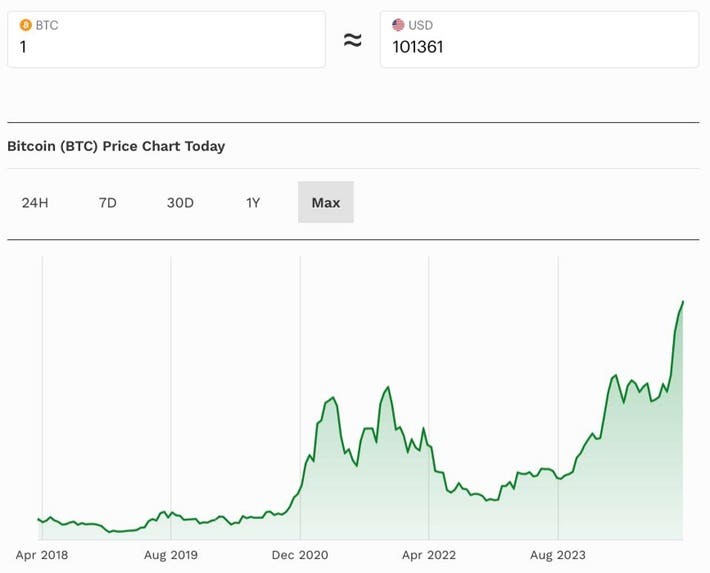
In a groundbreaking development for cryptocurrency markets, former President Donald Trump has confirmed plans to establish a U.S. strategic bitcoin reserve if elected in November, sparking predictions of an unprecedented price surge to $800,000 per bitcoin.
During a recent CNBC interview, Trump expressed his commitment to positioning America at the forefront of cryptocurrency adoption, stating "We're gonna do something great with crypto because we don't want China, or anybody else... but others are embracing it, and we want to be ahead."
The announcement follows Trump's July 2024 appearance at the Bitcoin 2024 conference, where he initially proposed creating a "strategic national bitcoin reserve" and suggested bitcoin could surpass gold's $16 trillion market value.
Supporting this initiative, Republican Senator Cynthia Lummis has introduced the BITCOIN Act to Congress, proposing the acquisition of 1 million bitcoins over five years. This strategic move aims to address the mounting $35 trillion U.S. national debt.
The timing of Trump's confirmation coincides with revelations that Russian lawmakers are pursuing similar bitcoin reserve plans, following President Vladimir Putin's endorsement of bitcoin as an alternative to traditional foreign currency reserves.
Perianne Boring, founder of The Digital Chamber, projects bitcoin's value could exceed $800,000 by the end of next year, potentially pushing its market capitalization to $15 trillion from its current $2 trillion valuation. This forecast is based on the stock-to-flow model and assumes successful implementation of Trump's proposed policies.
The cryptocurrency market has already responded positively to these developments, with bitcoin surpassing $100,000, driven partly by institutional investors experiencing what Wall Street executives describe as bitcoin "FOMO" (Fear of Missing Out).
This strategic shift in U.S. cryptocurrency policy could mark a new era in global financial markets, as major world powers appear to be entering what some analysts are calling a "bitcoin cold war."